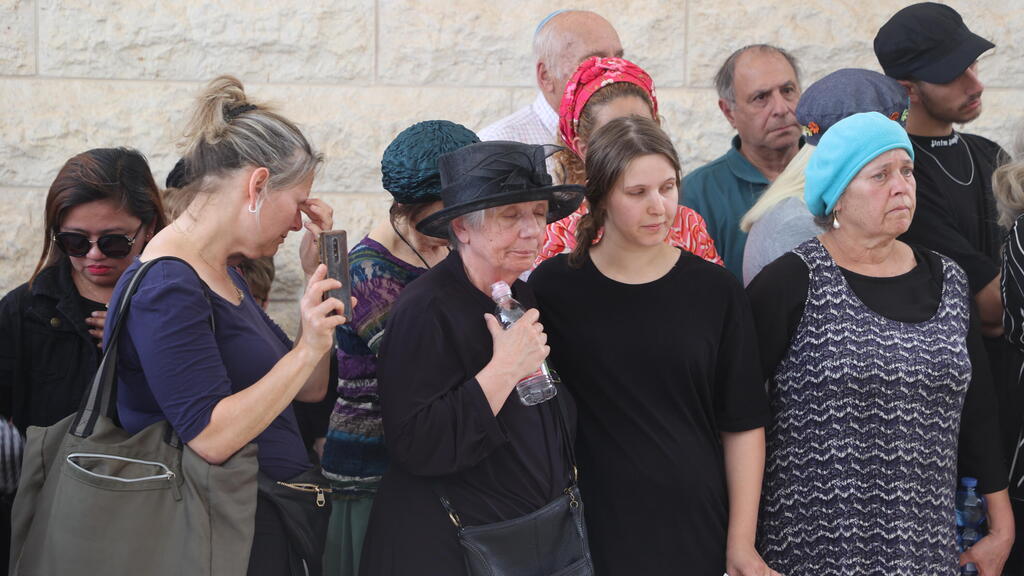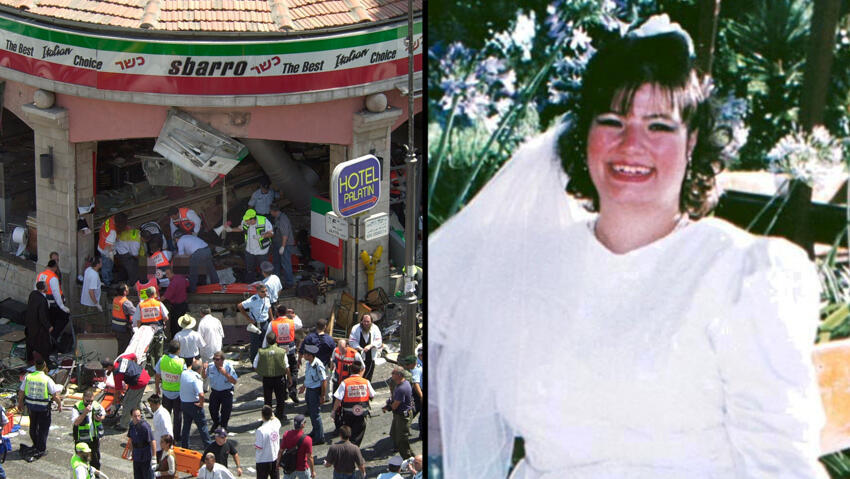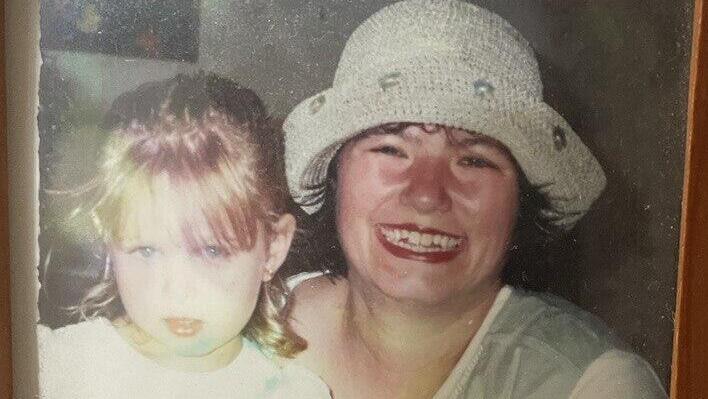A woman who was critically hurt in the terror attack on Jerusalem's Sbarro restaurant died after a 22-year coma. Chana Nachenberg, a native of New York, was sitting with her three-year-old daughter in the restaurant in the center of Jerusalem when a suicide bomber detonated his vest causing a mass explosion that killed 15 people and wounded Chana and some 140 others.
Other stories:
"Ever since she lost consciousness on the day of the attack, I didn't lose hope, and I prayed that one day she would wake up. It didn't happen," Paula Feiner, Chana Nachenberg's mother said at her funeral on Thursday in Modi'in.
Chana was 52 years old when she died on Wednesday night, but 31 years old when she was injured in the attack and fell into a coma from which she never woke up. She left behind her husband David, her parents Yitzhak and Paula, brothers Zeev and Shushi and her daughter, Sara - who was 3 years old at the time of the attack and miraculously survived it. Sara is currently the mother of two children and is pregnant with Chana's third grandchild.
As Sara tore her shirt, a Jewish symbol of mourning, she said: "Dear mother, I know how much you loved me and I love you too, and even though I've missed you for 22 years, now I feel as if everything is starting from the beginning," Sara paid tribute to her mother and asking for her forgiveness that because of her pregnancy she could not be by her mother's side in her last moments.
Before the funeral, family members spoke with Ynet at the family home in Modi'in. In the living room of the house, Paula lit a large yartzheit candle, and looked at photos from her daughter's life.
"From her wedding day and since she was a small, smiling girl," she explained in a voice choked with tears. She says that at first, after her daughter fell into a coma, "every day we were by our Chana Tova's side and when we found her a caregiver who took care of her for 20 years, we came at least four times a week. We sang to her, we talked to her. Every Friday we came to her for Shabbat, she was a full part of the family."
Chana's father, Yitzhak, added that the family always felt that there was a "spot of light" and that his daughter heard and felt her relatives sitting by her bed.
"Sometimes she would respond to our requests to blink, and it would seem that she was responding. We never lost hope that Chana Tova would wake up, even though medically there was no chance."
In the last few weeks her condition deteriorated, and Wednesday night, a little after 10:00 p.m., with her parents by her side, Yitzhak says: "I felt her last breaths, we held her hand until she took her last breath and I read Shema Yisrael over her."
Chana, he added, "was a hero for us. She fought all these years to survive and even in her human condition she continued to live, 21 years and nine months. She is a hero who fought until her last breath."
The terrorist suicide attack was carried out during the second intifada on August 9, 2001. The bomber, a 22-year-old resident of the Palestinian village of Aqqaba near the West Bank city of Jenin, entered the restaurant at peak lunch hour when the place was packed. Eyewitnesses said he asked a waiter how long it would take to prepare spaghetti and before the waiter could answer, the terrorist reached into his pocket and detonated the powerful bomb.
There were eight children among the dead and the restaurant was completely destroyed.
3 View gallery


The funeral of Chana Nachenberg, the 16th victim of the Jerusalem Sbarro terrorist bombing in 2001
(צילום: יריב כץ )
The suicide attack at a restaurant on Jaffa Street in the heart of Jerusalem occurred during the second intifada, on August 9, 2001. The terrorist Muhammad al-Masri (22), a Hamas operative from the Palestinian village of Aqaba, southeast of Jenin, entered the restaurant at noon while it was full of customers. Eyewitnesses said that the terrorist asked one of the sellers how long it would take him to make spaghetti, and while the seller was answering, he put his hand in his bag and set off a powerful explosive device.
The terrorist suicide attack was carried out during the second intifada on August 9, 2001. The bomber, a 22-year-old resident of the Palestinian village of Aqqaba near the West Bank city of Jenin, entered the restaurant at peak lunch hour when the place was packed. Eyewitnesses said he asked a waiter how long it would take to prepare spaghetti and before the waiter could answer, the terrorist reached into his pocket and detonated the powerful bomb.
There were eight children among the dead and the restaurant was completely destroyed.
Ahlam Tamimi, the first woman to join the Hamas terror group and the person who drive the terrorist to the restaurant and another accomplice were sentenced to life in prison for their roles in the attack but were both released in a prisoner exchange in 2011 agreed for the return of IDF soldier Gilad Shalit from five years of captivity in the hands of Hamas in Gaza.
Abdullah Barghouti who had made the bomb used in the terror attack, is still serving a term of 67 life sentences. The bomber's remains were transferred to the hands of the Palestinian Authority in 2014.
First published: 15:58, 06.01.23



